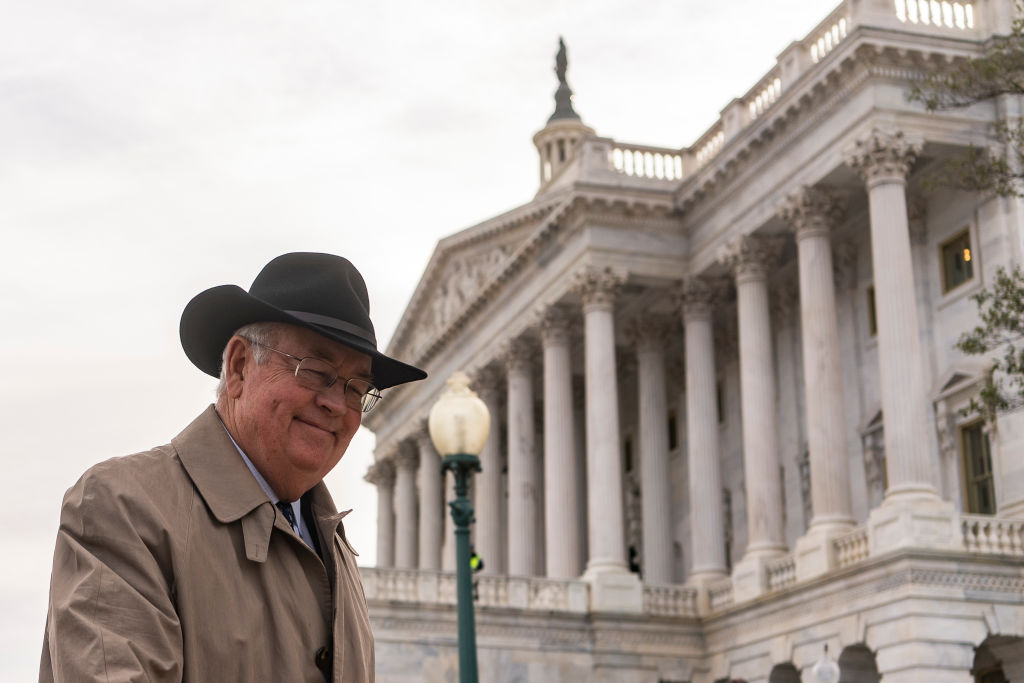
This article is part of The D.C. Brief, TIME’s politics newsletter. Sign up here to get stories like this sent to your inbox.
Ken Starr stood in the well of the Senate, a little jittery but plenty excited. The air was dry, the sounds a little muffled, the water glasses a little too luke-warm. Still, it was a familiar tableau for a man whose earlier work in the late 1990s brought about the second-ever-in-history impeachment of a U.S. President. Roughly two decades later, he was on the opposite end of the fight, arguing without an ounce of irony that the United States was living in “an age of impeachment” as the country considered its third.
“Like war, impeachment is hell,” Starr told Senators on Jan. 27, 2020, as he argued in defense of President Donald Trump during his first of two impeachment trials. “Or at least presidential impeachment is hell. Those of us who lived through the Clinton impeachment … well understand that a presidential impeachment is tantamount to domestic war.”
So confessed a former federal judge, solicitor general, independent counsel, law school dean, and university president who during Bill Clinton’s tenure served as the commanding general of that self-described domestic war, one rooted in political grievance and personal grudges. Starr’s inquiries—some said they mutated into more of a crusade—led to the impeachment of Clinton over the coverup of his improper sexual relationship with a White House intern and false statements made about it. Starr later said he regretted the way he allowed his original investigation into a bum real estate deal to escalate. Still, he made money on the memoirs and cemented his reputation as a conservative rock star.
Starr at one point seemed destined for a seat on the Supreme Court, but ultimately had to settle for seeing two of his prodigies—John Roberts and Brett Kavanaugh—on the bench. But his mark on history reaches far beyond that. Starr defined the culture wars of the late 1990s, midwifed George W. Bush’s ascent, and, perhaps in ways Americans still don’t grasp, shaped the path of the early twenty-first century for the country.
By the time of Trump’s first impeachment, a polarized America’s comfort with cognitive dissonance was well tolerated. It didn’t matter the specifics: facts had become irreverent distractions in the game of politics, whether they involved a presidential fib about “sexual relations with that woman” or foreign interference with an election. Politicians don their jerseys, their friends buy the swag, and it’s tough to shake the allegiance.
Ken Starr alone didn’t create that environment. But he was a product of it and fed it kindling, climbing from a clerk to Richard Nixon’s Chief Justice to a federal judge himself, nominated by Ronald Reagan, to George H.W. Bush’s chief lawyer at the Supreme Court. In an encore of sorts, he joined Trump’s team as a platinum-plated veteran of a previous impeachment, a bauble on a team that never made sense yet still won in a party-line Washington.
So when Starr died Tuesday, a result of lengthy complications from a surgery, he left behind a complicated C.V., one that shaped two presidencies—one by his pursuit of creeping transgressions and another by his defense of them—and suffered his own contradictory career in academia. Ultimately, Starr should be remembered as a brilliant legal mind who stands as a warning for ambition: just because one can, doesn’t mean one should.
Make sense of what matters in Washington. Sign up for the D.C. Brief newsletter.
More Must-Reads from TIME
- Donald Trump Is TIME's 2024 Person of the Year
- Why We Chose Trump as Person of the Year
- Is Intermittent Fasting Good or Bad for You?
- The 100 Must-Read Books of 2024
- The 20 Best Christmas TV Episodes
- Column: If Optimism Feels Ridiculous Now, Try Hope
- The Future of Climate Action Is Trade Policy
- Merle Bombardieri Is Helping People Make the Baby Decision
Write to Philip Elliott at philip.elliott@time.com